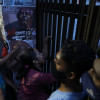How long will we ignore what's happening in police custody?

"We're still deprived of justice," lamented Imtiaz Hossain Rocky, a victim of custodial torture, to a reporter of this daily about two weeks ago (The Daily Star, July 13, 2022). His brother Ishtiaque Hossain Jonny, 28, was brutally tortured to death in police custody in 2014. Both the brothers were picked up from a wedding ceremony in Dhaka's Pallabi area on February 8, 2014 after two police informants, Sumon and Russell, called police when Jonny slapped Sumon for harassing women guests at the event. At Pallabi police station, the siblings were subjected to intense torture. A day later, Jonny succumbed to the injuries in a city hospital. Rocky filed a case with the Metropolitan Session Judge's Court on August 8, 2014. On September 9, 2020, the court sentenced three former officers of Pallabi police station to life imprisonment and Sumon and Russel to seven years' imprisonment. In addition, the court asked each of the officers to pay Tk 2 lakh to the plaintiff as compensation.
This was the first conviction under the Torture and Custodial Death (Prevention) Act, 2013. Subsequently, all three former police officers appealed against the verdict, and the High Court stayed the convictions and payments of compensation. In the meantime, fighting the legal battle, the family has become virtually destitute. The physically disabled (as a result of the torture) Rocky now works as a motor mechanic to maintain both his family and that of his brother's.
This is not an isolated incident. Over the years, national rights organisations have been documenting and expressing concern about the "systemic nature" of custodial torture and deaths in Bangladesh. High hopes that were pinned on the 2013 law for mitigating the problem turned out to be largely misplaced. Incidents of custodial torture of detainees continue to be reported in the national media. Human rights organisation Odhikar informs that, until May 2022, at least 90 people have lost their lives due to torture in custody since the enactment of the law in October 2013. Three cases of alleged custodial torture in Lalmonirhat, Dhaka and Bogura provide important insights on this gruesome practice.
On April 14, 2022, a man named Rabiul Islam died in police custody in Lalmonirhat, which triggered a protest by agitated locals who set up roadblocks on the highway. Family sources say Rabiul went to buy toys for his little daughter at a local fair and engaged in an altercation with the police on duty. He was subjected to a severe beating when he resisted being transferred to a police van. He died the next day. Contrary to this narrative, police claim that the victim was detained after a raid at a gambling den, suddenly fell sick while in custody, and subsequently died in the hospital. The family firmly rejects the police's version of events and maintains that Rabiul never gambled.

In another sensational case, Rajib Kor, a jewellery artisan, claims that on February 10, 2019, three functionaries of Kotwali police station in Dhaka picked him up from his Goalnogor residence and beat him with a bat, stomped his face with their boot-clad feet, and extracted his nails. Finally, they stripped him naked and gave electric shocks to his genitals. Kor further claims that, at the time of his arrest, the policemen took away 28 bhoris of his mother and wife's gold jewelleries, Tk 41,300 cash that he had kept for his mother's eye surgery, his mobile phone and laptop, among other items. He informs that his family members were able to secure his release the next day only after making a payment of Tk 2 lakh to the perpetrators. He alleges that he is now under pressure "to settle the matter." Recently, in a letter to the National Human Rights Commission (NHRC), Kor expressed suffering from a sense of insecurity after he filed the complaint. The permanent member of the NHRC and the former secretary of the home ministry confirmed that, despite being given two deadlines of May 19 and May 25 this year, the Police Headquarters is yet to respond to the NHRC query if any action has been taken against the errant police personnel (Prothom Alo, June 12, 2022).

In the third case, a 15-year-old boy states that he was blindfolded, taken to a field at night, and with a pistol pressed against his chest, he was threatened by the police to admit that he had stolen a motorbike on May 21, 2022. He had little choice but to admit to the crime he had not committed (Prothom Alo, June 18, 2022). On May 21, the family members of the Class 9 student alleged that local community leaders inflicted severe bodily harm to the child in front of a crowd of about 100 people alleging that he had stolen a motorbike. Subsequently, the perpetrators handed the child over to the police. Instead of extending protection, the boy was incarcerated in the police station for two days and three nights before he was presented to the court and charged for theft. The police authorities reject the torture claim and assert that the boy had admitted to stealing more than one motorbike. They, however, could not offer any explanation as to what grounds the victim was detained on for more than 24 hours, the maximum period permissible under the law. The child states that he was handcuffed and kept hanging from the window grills of the police station with an iron rod pressed against his fist. His mother states that during the whole period that the boy was in the police station, the family members were denied access to him, who now suffers from partial loss of hearing. The boy's family is under pressure to pay compensation to the motorbike owner. Curiously, the latter admitted that he did not register any complaint with the police about the stolen motorbike, and the authorities weren't able to recover the bike either.
The above cases reveal the dearth of legal protection that detainees often endure in police custody. In all cases, they were severely harmed physically and mentally when they stood up against the misdemeanour of the police or their informants, refused to give in to extortion demands or refused to confess to crimes they did not commit. In the case of Rajib Kor, not only valuables were looted from his house, but the family was subjected to extortion for his release. The child was illegally detained by the police for a period much longer than legally authorised. In at least one case, the victim became permanently disabled, and in another, hearing loss may become permanent. In all cases, the victims and their families not only suffer from major financial hardship (and in one instance, illegal payment claims for the motorbike), but continue to endure intense mental trauma.
The families feel that the state agencies not only failed to protect the victims from the predators when they struck, but also after the commission of the acts as they did not ensure due investigation and redress. The authorities' inability to rein in the perpetrators is likely to swell the perception of other wayward members of such agencies that a uniform provides impunity. The lack of response of the police to the NHRC's rather innocuous bidding also reveals its disregard of the statutory institution, augmenting the view that the NHRC has to be revamped with greater autonomy along the lines of the Paris Principles.

The United Nations has condemned torture "as one of the vilest acts perpetrated by human beings on fellow human beings." It is a crime under international law. Under all applicable international instruments, it is absolutely prohibited and cannot be justified under any circumstances. The UN reiterates that this prohibition forms part of customary international law, which makes it binding on every member of the international community, "regardless of whether a State has ratified international treaties in which tortures is expressly prohibited." It goes on to state that "the systematic or widespread practice of torture constitutes a crime against humanity" (UN Statement on International Day in Support of the Victims of Torture, June 26, 2022).
It is unfortunate that the issue of torture has hardly been debated in the national parliament despite the fact that the Torture and the Custodial Death (Prevention) Act was legislated on its floor. Building on its significant contribution in issuing landmark directives on arrest and remand, citizens would find relief if the higher judiciary considered taking suo moto action against those who engage in gross violation of rights, such as committing custodial torture and death. There is a strong case that the Bangladesh Medical and Dental Council ensures that physicians and forensic experts adhere to the principles of medical ethics in dealing with cases of torture and inhuman and degrading treatment of prisoners and detainees. Needless to say, the silence of the intelligentsia and the mainstream civil society on this important human rights abuse has been deafening.
One wonders why the reputation of a law enforcement agency, which has the glorious track record of shedding first blood in the Liberation War while resisting the murderous Pakistani occupation forces, is put on stake to protect the offenders within its ranks. If the authorities fail to ensure credible and prompt investigation and prosecution of the perpetrators of torture belonging to law enforcement agencies, then it amounts to granting them impunity, while the victims feel betrayed by the state, and the ordinary citizens' trust on the institution erodes. Moreover, it also tarnishes the image of the concerned agencies and that of the state.
Dr CR Abrar is an academic and human rights expert.

 For all latest news, follow The Daily Star's Google News channel.
For all latest news, follow The Daily Star's Google News channel. 










Comments